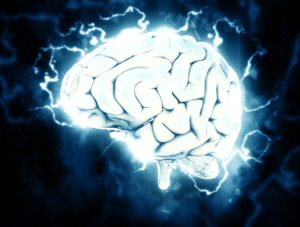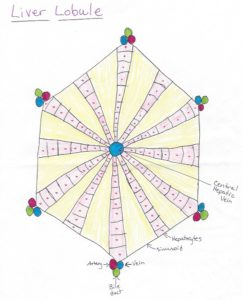Blood Brain Barrier [Show Notes]

Basics
The blood brain barrier is the last layer of cells between what’s in your blood and the extracellular fluid around your brain cells.
You’re born with it! It’s main job is filtration.
2 ways things get through the blood brain barrier:
- Passive diffusion: small, neutral molecules (water, gases, lipid-soluble)
- Active transport: glucose, amino acids, drugs (like a revolving door)
Permeability: how easily something can pass through a layer without work
Things that change permeability:
- Inflammation – stretches layer and makes holes bigger (meningitis, injury)
- Multiple sclerosis – an auto-immune disease that can degrade the BBB
- Alzheimer’s – BBB becomes overwhelmed with antibodies and burns out
*Scary Section*
Rabies is a virus that is small and can get through the blood brain barrier but the immune system cells, antibodies from the vaccine, and medicines can’t.
HIV encephalopathy is caused when a mutation of the HIV gets into the brain and use brain cells to replicate (rather than the well-known T-cells of the immune system). There is also a rare symptom of HIV called HIV-associated dementia.
Callback
microchimerisms – Pregnancy causes the permeability of many areas of the body to change, and this includes the BBB.
Test Yourself
Drugs that have central nervous system effects (good) or side effects (bad) cross the BBB. See what you know of different medications and what job they’re supposed to do and what negative side effects they cause and see if you can guess if they cross the BBB.
Connect with me
Support us on Patreon
*NEW* Join the Pharmacist Answers Podcast Community on Facebook
Subscribe: iTunes, Stitcher, GooglePlay, TuneIn Radio
Music Credits: “Radio Martini” Kevin MacLeod (incompetech.com) Licensed under Creative Commons: By Attribution 3.0 http://creativecommons.org/licenses/by/3.0/


